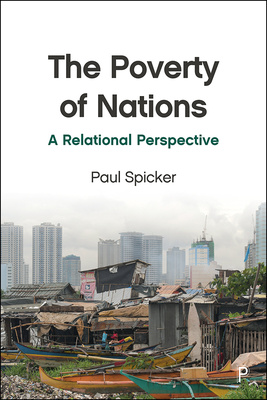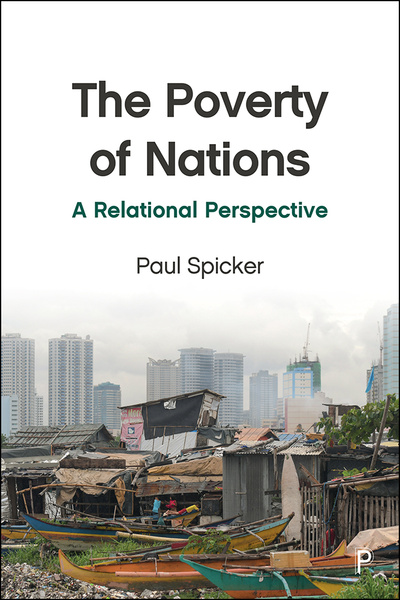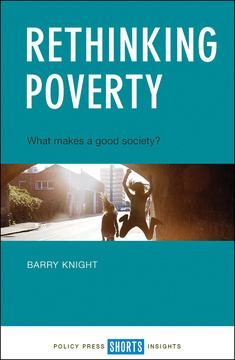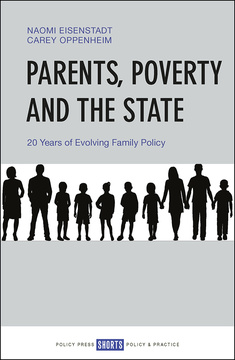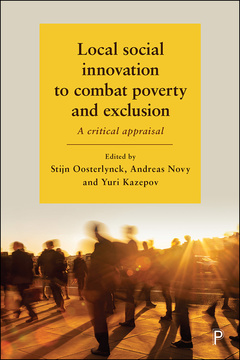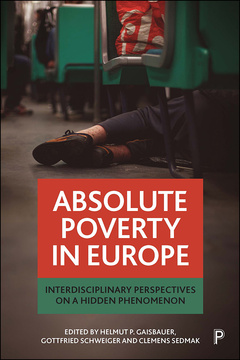Published
Mar 11, 2020Page count
218 pagesISBN
978-1447343332Dimensions
234 x 156 mmImprint
Policy PressPublished
Mar 11, 2020Page count
218 pagesISBN
978-1447343325Dimensions
234 x 156 mmImprint
Policy PressPublished
Mar 11, 2020Page count
218 pagesISBN
978-1447343356Imprint
Policy PressPublished
Mar 11, 2020Page count
218 pagesISBN
978-1447343356Imprint
Policy PressIn this persuasive study, social welfare and policy expert Paul Spicker makes a case for a relational view of poverty.
Poverty is much more than a lack of resources. It involves a complex set of social relationships, such as economic disadvantage, insecurity or a lack of rights. These relational elements tell us what poverty is – what it consists of, what poor people are experiencing, and what problems need to be addressed.
This book examines poverty in the context of the economy, society and the political community, considering how states can respond to issues of inequality, exclusion and powerlessness. Drawing on examples of social policy in both rich and poor countries, this is an accessible contribution to the debate about the nature of poverty and responses to it.
"Spicker’s open and pragmatic view of the balanced benefits of development will appeal to many. The Poverty of Nations: A Relational Perspective is a useful
entrée into thinking about poverty more broadly. ... it resonated with many of my own experiences of work in both international development and social security contexts. This was perhaps its key strength, its attempt to connect understanding of poverty across a divide of very different circumstances and nations, whilst also honouring the particular experiences of each." International Journal of Social Welfare
"The author provides fresh insights into a long-standing topic at the heart of development theory and practice. His multi-level and multi-disciplinary analysis, which looks at poor and rich countries in tandem, is an important contribution to current development debates in the era of the Sustainable Development Goals." Katja Hujo, United Nations Research Institute for Social Development (UNRISD)
"This thoughtful exploration of the contemporary landscape of poverty studies is especially valuable for those of us focused on human rights and social justice from the perspective of the global South." Camilo Pérez-Bustillo, Stanford University
"For those of us working in developing countries where minimalist monetary measures of poverty dominate, this book provides a welcome enjoinder to place social relationships centre stage in poverty discourses and when considering policy solutions." Michael Noble, University of Oxford and Southern African Social Policy Research Institute
Paul Spicker is Emeritus Professor of Public Policy at Robert Gordon University. He has been a consultant on social welfare for a range of agencies; his research includes studies of poverty, need and service delivery.
Introduction: Representations of poverty
Part I ~ Poverty: economic and social relationships
Poverty
Poverty and the economy
Economic development
Inequality
Exclusion
Poverty and rights
Poverty and social policy
Part II ~ Rich and poor countries
Poverty in national perspective
Poverty and the state
Poverty in rich countries
Poor countries
Rich and poor countries
Responses to poverty
Conclusion: Poverty and social science







